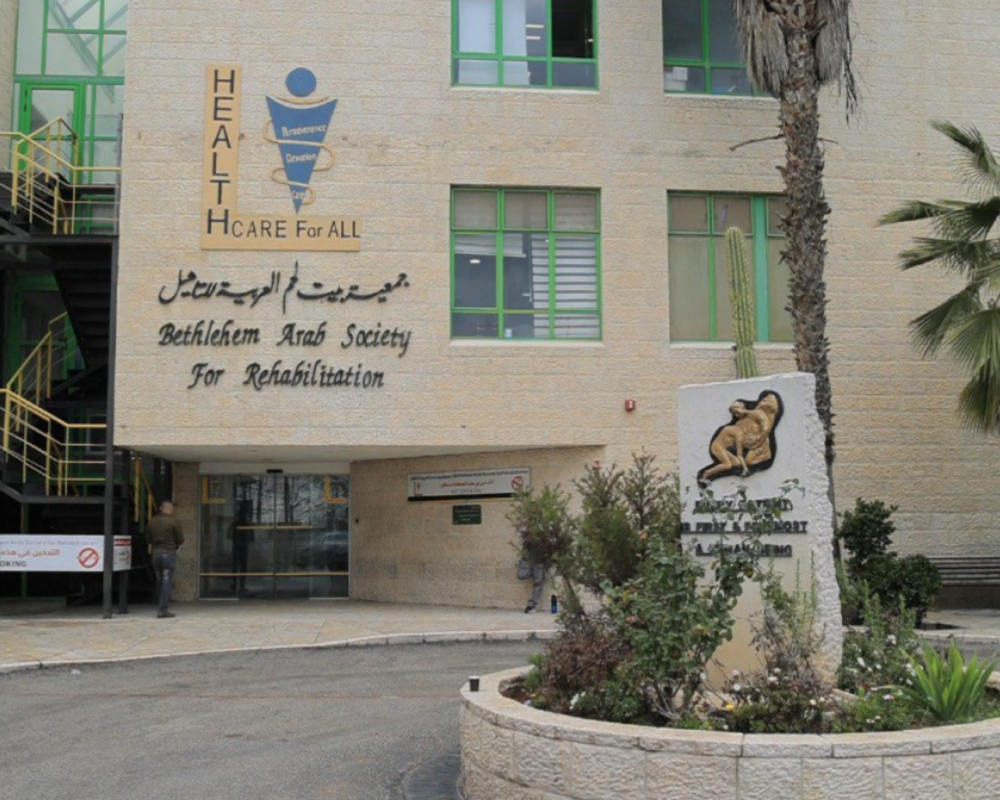
Bet Jala /PNN /
The Bethlehem Arab Society for Rehabilitation BASR in Bethlehem, the specialized rehabilitation hospital in the West Bank, including the only cardiac department in the Bethlehem governorate, is facing a severe financial crisis. This is due to the Palestinian government's failure to settle accumulated debts amounting to 65 million Israeli shekels.
The association's board of directors announced two weeks ago that it would cease receiving patients receiving medical referrals from the Palestinian government, primarily heart patients from Bethlehem residents. This department is the only one in the governorate, with the government transferring heart disease cases to this section through the government hospital in Beit Jala.
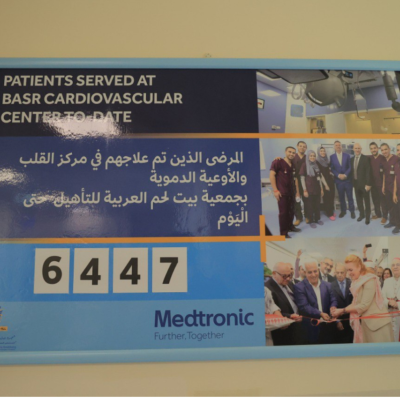
This department has managed to save the lives of around seven thousand patients from the governor-ate. There are concerns that halting their admission would lead to the death of many heart patients since the alternative is a hospital in Hebron, separated from Bethlehem by Israeli barriers since October 7th.
In a letter addressed to the Minister of Health, Dr. Mai Alkaila, and the Palestinian government, the Society's board of directors stated that the association is no longer able to provide services. It has been forced to reduce the number of beds from 100 to 80 and decrease staff due to the financial crisis.
The association's outstanding debts to the Ministry of Health reached 65 million Israeli shekels.
The board of directors added that the monthly transfers from the ministry do not cover the required 2 million shekels, with the ministry only paying 650,000 shekels. This has led to the cumulative amount reaching 65 million shekels.
Despite hoping for improvement in the government's monthly or emergency payments, the crisis persisted. Banks did not respond to their requests, and borrowing to meet monthly obligations became futile. Consequently, the hospital couldn't sustain some services under the current circumstances.
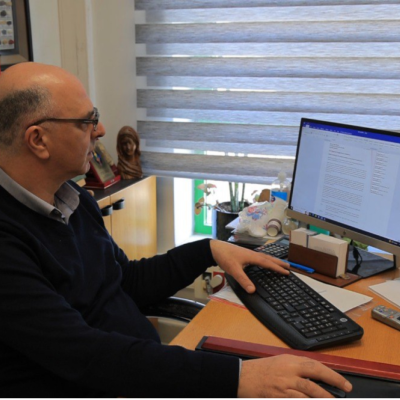
The letter added, "Following what was mentioned and given the challenging financial circumstances our hospital is facing, we will continue to provide medical services to our people within the association's capabilities." It clarified that the decision to stop receiving cases in the cardiac department was due to the inability to provide necessary medical supplies for safe operation, except for acute heart attacks (STEMI).
The hospital also decided to cease admitting cases to the Intensive Care Unit (ICU) and reduce the intake of surgical, rehabilitative, and other cases.
The Arab Society hospital further stated that its decision to halt referrals came after extensive patience and significant promises during meetings with health officials, local authorities, security agencies, factions, and civil society institutions. This step followed prolonged delays and assurances, where only a small portion of the financial debt was provided as exceptions, lacking intervention from higher authorities in leadership.
BASR emphasized that these payments are insufficient for hospital operations, taking this step due to the lack of medical supplies, unpaid salaries, and doctors' dues, hindering any further procedures as the department's storerooms are depleted of necessary medical supplies.
BASR: "We cannot operate if the government doesn't settle a significant portion of the debts."
Eaile Shahada added that he hopes the government responds to the demands and settles a large portion of the debts to enable them to continue providing their services.
Regrettably, there has been no tangible movement, he said, adding that it's not unfamiliar for the government because over the past year, the hospital reached out to its highest levels – the presidency, prime ministers, even members of Fatah Central Committee and the Palestine Liberation Organization – all without results, leaving the hospital without the needed funds.
Shahada explained the financial crisis's repercussions on the hospital, forcing it to restructure. Last year, the number of beds was reduced from 100 to 80, and some staff members were laid off. Some employees have not received salaries for a year, reflecting the hospital's difficult situation. After October 7th, some suppliers started demanding cash payments and asked for part of the old debt, placing a substantial burden on the hospital.
The director of the Arab Society Hospital concluded by appealing to the government to take action to try to resolve this crisis and settle its debts within a specific plan before it's too late.
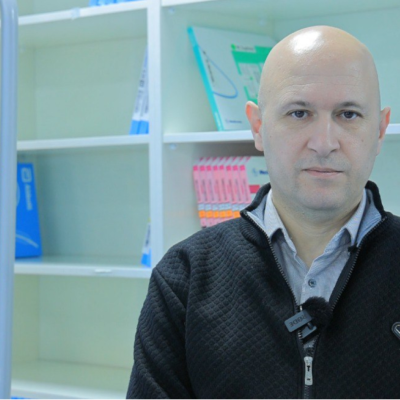
The repercussions are not just financial and administrative but also health-related.
Dr. Rami Al-Ja'ba, Head of the Cardiac Department at the Arab Society Beit Jala Rehabilitation Hospital, highlighted that when the association opened the cardiac department in Bethlehem five years ago, it aimed to provide numerous services and features for citizens. Over the past years, it successfully contributed to cardiac health, considering it one of the most crucial departments opened in Palestine.
Dr. Al-Ja'ba pointed out that in the last year, there has been a significant decline due to the financial crisis within the association, coupled with unpaid obligations from the Ministry of Health. Consequently, there has been a reduction in services offered by the cardiac department, particularly cutting back on highly advanced services that distinguished the Arab Society, attracting many patients from across the country.
Due to substantial debts owed to suppliers, the association will halt critical operations such as treating acute heart attacks and attending to emergency cases, which could affect a patient's life if treatment is delayed by just 5 minutes, potentially leading to heart muscle weakness and other complications.
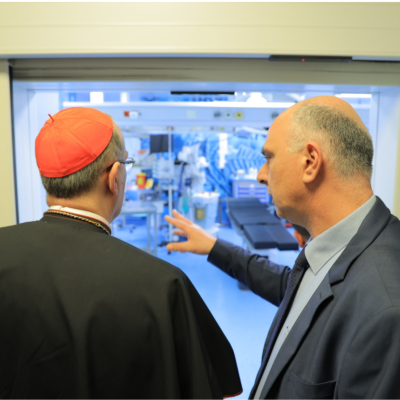
The employees of the association have been working without salaries for around 11 months, demonstrating commitment despite financial constraints. Discontinuing services would pose a threat to them at any moment.
Dr. Al-Ja'ba emphasized the association's general outlook, focusing on developing cardiac medical services by introducing advanced and new services not existing in Palestine. Despite many attempts at improvement, there is still a need for more significant development to reach the advanced global level in the cardiac department.
The ongoing financial crisis has led to a decline in services and halted further development.
The association's goal is to introduce unavailable services, save citizens' lives, and, most importantly, enhance the quality of life in cardiac care. The financial crisis hinders the introduction of new services.
Interventions from churches and religious leaders to ensure the continuity of services:
As part of their efforts to raise awareness of the risks of discontinuing the cardiac department, the association's management continues to engage with religious leaders and local officials to find a solution to the crisis. Their latest efforts included hosting a reception for the Latin Patriarch of Jerusalem, Pierbattista Pizzaballa, to brief him on their work, activities, recent medical developments, and the hospital's recent challenges.
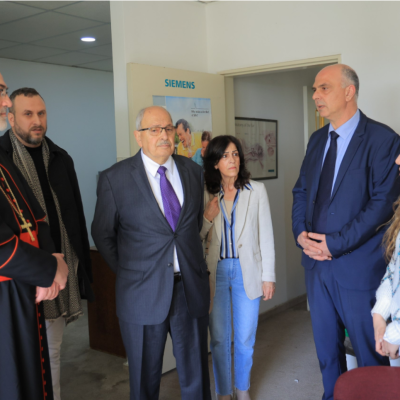
The Latin Patriarch Pierbattista Pizzaballa stated that the work the association's hospital is doing is crucial. He emphasized that the hospital is a gem within Palestine due to the quality of services it provides. He expressed pride in the existence of such a hospital and urged everyone to work towards maintaining its services.
Bashara Abu Ghannam, Chairman of the Board of Directors at the Arab Society for Rehabilitation, mentioned that the Patriarch showed significant interest in the level of work. They exchanged ideas to help the association overcome the current financial crisis, expressing hope that the efforts would succeed in resolving the crisis and bring benefit to the hospital and the nation as a whole.